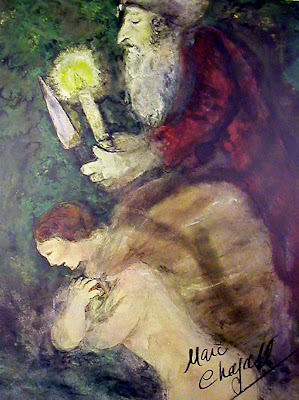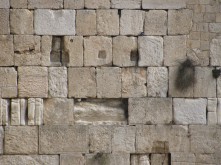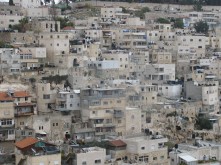“For you have rescued my soul from death and my feet from stumbling, that I may walk before God in the light of the living.”
Psalm 56:12
The Daily Office readings lately are filled with people walking places. We’ve been hearing the saga of Abraham as he answers God’s call to leave his land of Ur and walk to places he does not know. He goes.
Today in Genesis 21:1-21 Abraham sends Hagar and their son, Ishmael, away because his wife, Sarah is jealous. Abraham, with a heavy heart, complies, and Hagar walks into the desert. Seeing her son nearly die, and angel rescues them, and they walk onward.
In the gospel lessons of late, Jesus is walking all over the countryside and beckoning people to “believe” in him. His invitations raise a question for me: What if we substituted the word “walk” for “believe”? How would that change our understanding of faith?
That is precisely what the Letter to the Hebrews is getting at. Today’s reading from Hebrews 11:13-22 draws on the Abraham story to tell us that faith requires going somewhere, doing something, taking steps. Walking.
“If they had been thinking of the land they left behind, they would have had opportunity to return. But as it is, they desire a better country, that is a heavenly one.”In the mystical Gospel of John 6:27-40 on Monday, and again today in John 6:41-51, we’ve been treated to a series of sayings by Jesus about believing:
“Whoever comes to me will never be hungry, and whoever believes in me will never be thirsty…”What does Jesus mean by “believe”? Does he mean making an intellectual assent to a series of propositions or abstract philosophical constructions? That might be how Christians church of the 2nd century onward would view this, especially given the influence of Greek philosophy. It is also how many modern Christians would view this.
“All who see the Son and believe in him may have eternal life…”
“Whoever believes has eternal life. I am the bread of life…”
But Jesus wasn’t Greek and he wasn’t modern. He was Jewish. What if Jesus is getting at a Hebrew idea that is more in keeping with the saga of Abraham? What if he is talking about walking? Here the sayings again this way:
“Whoever comes to me will never be hungry, and whoever walks with me will never be thirsty…”Maybe it is all about the steps each of us takes. One step at a time. What steps are each of us called to take today? Where are we called to walk?
“All who see the Son and walk with him may have eternal life…”
“Whoever walks with me has eternal life. I am the bread of life…”
Art: "Abraham Walking with Isaac" by Marc Chagall, 1931.























